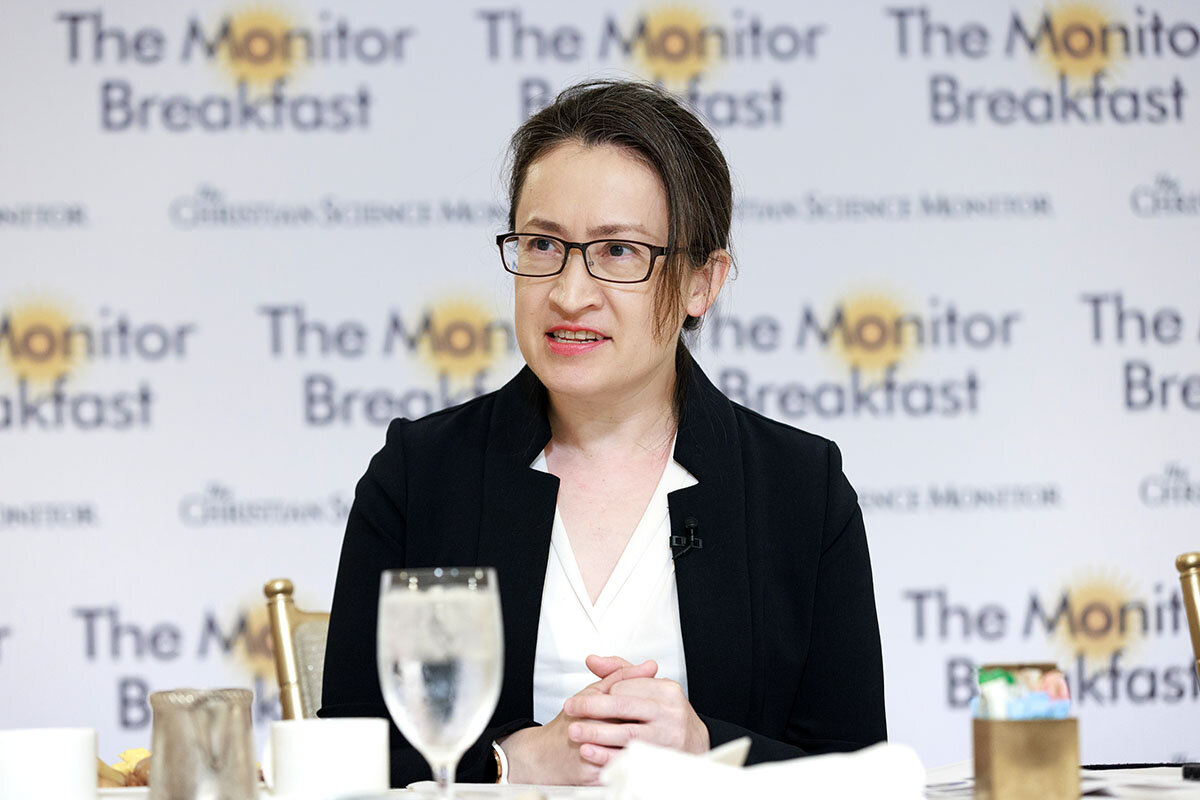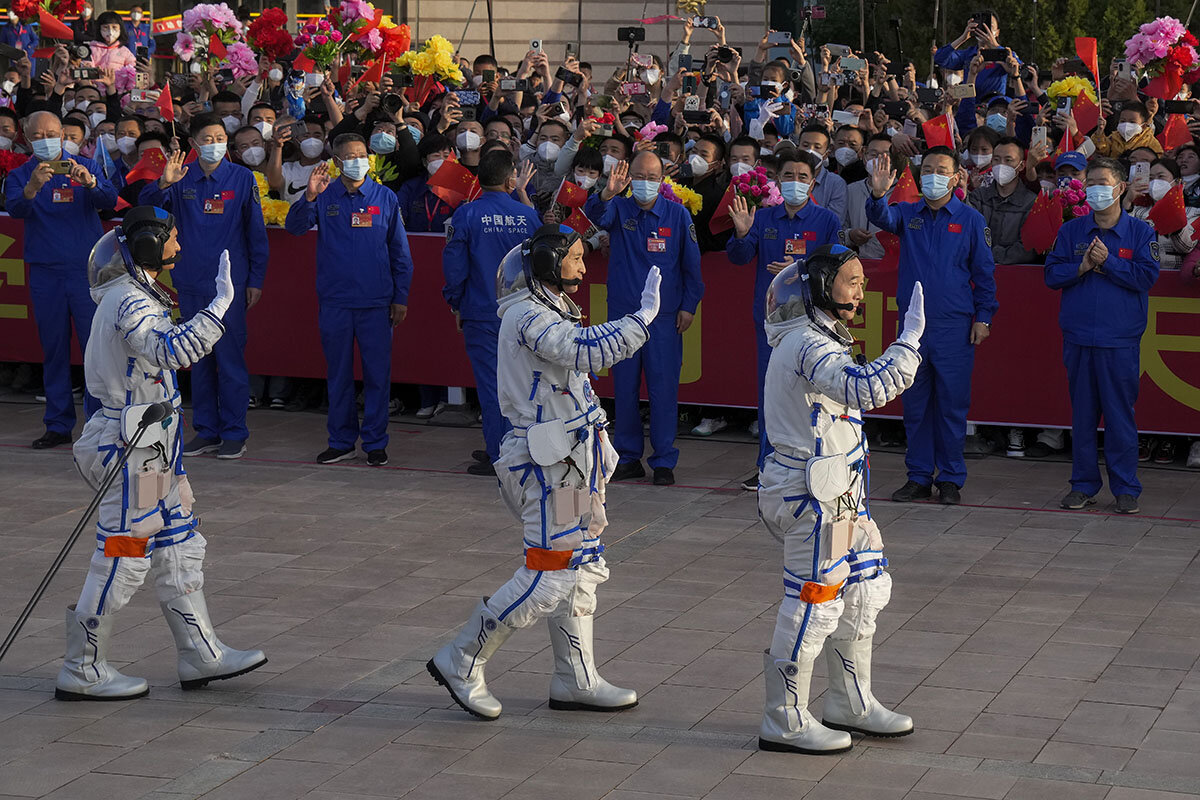Our latest Monitor Breakfast with a newsmaker focused on Taiwan and the heightened security tensions with China. The island’s representative to the United States talked of defensive preparations and a Ukraine effect on attitudes.
Monitor Daily Podcast
- Follow us:
- Apple Podcasts
- Spotify
- RSS Feed
- Download
 Amelia Newcomb
Amelia Newcomb
They’re coming for our jobs. The machines will outthink us. How will we tell what’s real, what’s not?
Artificial intelligence isn’t new, but the rise of the app ChatGPT has pushed it again to the forefront and brought with it a heightened fear factor – including among journalists. But at the International Press Institute’s recent annual conference in Vienna, which drew 300-plus scribes, speakers targeted not only daunting challenges like regulation, transparency, and fake reports. They spoke of something else as well: reason for optimism – about the kind of journalism it can free news outlets to do, and the new ways it can reach a broader audience.
Charlie Beckett, director of the Polis/London School of Economics’ JournalismAI project, told listeners that the lack of understanding of what AI can do – and can’t – has fed “organized panic” in newsrooms. Machine learning is indeed a “giant leap,” he said, impacting news gathering, content production, which jobs survive, and new jobs that will demand new skills.
But understanding AI as a tool will also allow journalists to shed many basic daily tasks, from summaries to data gathering. That frees time to go deeper, be it for on-the-ground reporting or sifting through masses of information that once would have been unmanageable. Just think of the Panama Papers, 11 million documents leaked to the German newspaper Süddeutsche Zeitung, which used machine learning to understand them and report on a tax-evasion scandal that made global headlines.
AI, for all its prowess, can’t replace the human element. “If journalism has a mission, has empathy, has judgment, has expertise, you’ll thrive, because AI doesn’t know anything, feel anything,” Mr. Beckett said. “This is a language machine – not a truth machine.”
He concluded, “That is my exhortation: Fear not, get knowledgeable, and deploy this in a way that boosts responsible journalism, as it’s needed now more than ever.”










